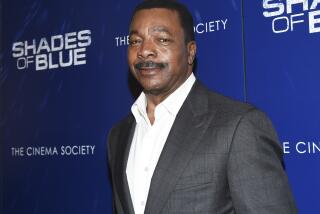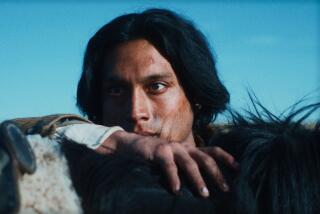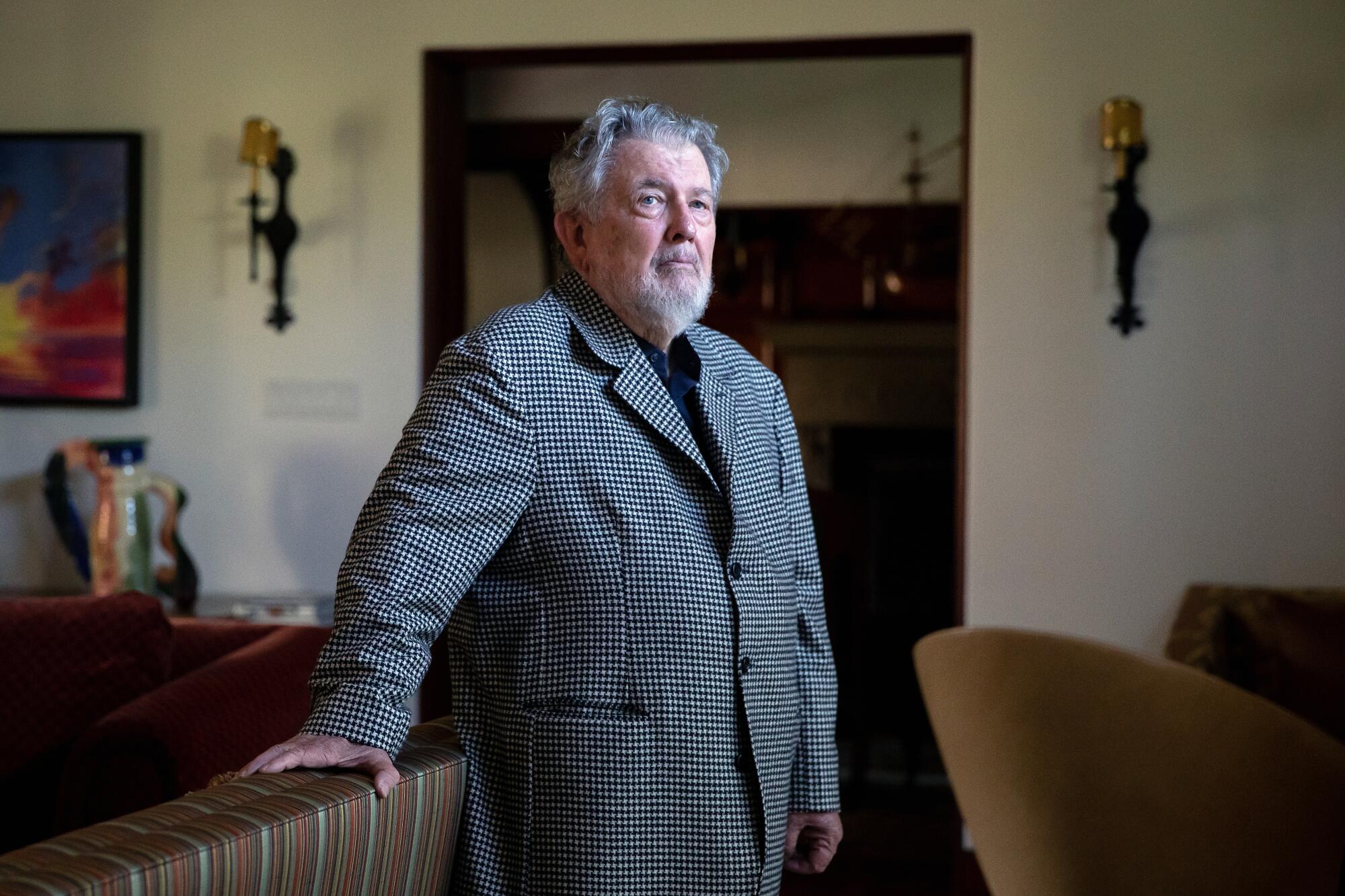
With films such as “The Warriors,” “48 Hrs.,” “The Driver,” “Hard Times” and “Streets of Fire,” Walter Hill established a legacy as a master mechanic of genre storytelling, effortlessly mixing elements from different styles to create fresh, fascinating hybrids.
He has also returned often to the western, with “The Long Riders,” “Wild Bill,” “Geronimo: An American Legend” and Emmy-winning work on “Broken Trail” and “Deadwood.”
Written and directed by Hill, the new “Dead for a Dollar,” out now in select theaters and on video on demand, is an example of the stripped-down efficiency of Hill’s classic work, where no gesture or moment seems excessive or wasted. Set in 1897, the film follows Max Borlund (Christoph Waltz), a bounty hunter hired to bring back Rachel Kidd (Rachel Brosnahan) and Elijah Jones (Brandon Scott), a Black deserter from the U.S. Army. Rachel’s husband (Hamish Linklater) had told Borlund that Jones had kidnapped her, but the truth is something different. The cast also includes Willem Dafoe, Benjamin Bratt and Warren Burke.
Hill’s ability to cross-pollinate genre elements also includes his work on the “Alien” franchise, on which he was an active producer on the first three installments (and his name remained on other films in the series), a blend of sci-fi, horror and suspense.
In a recent conversation at his longtime Beverly Hills home, Hill, now 80, is every bit the old-school gentleman filmmaker, referring to literature and fine art as he casually skips across decades, respectful of his role as an eyewitness to moments of Hollywood history.
He recalled working out story problems while collaborating on a screenplay with John Huston. And the time Steve McQueen hurled a magnum of champagne at the head of Sam Peckinpah. (He missed.) And when his friend, French filmmaker Jacques Demy, said that Americans too often forget their own lesson — that the perfect length for a movie is 90 minutes. Talking about his long friendship with production designer and producer Polly Platt, Hill got emotional, saying, “For the tough guy action director, you may see tears form in my eyes.”
Hill recently received a special award at the Venice Film Festival, where “Dead for a Dollar” premiered. And more than anything, he doesn’t feel finished. As he said, “I’m very aware there’s less through the windshield than there is in the rearview mirror. But I’m not quite ready to sit around the house and read magazines, so I’d like to do a couple more.”
The veteran filmmaker combines crackling dialogue and an incredible cast, featuring Christoph Waltz, Willem Dafoe and Rachel Brosnahan, in old west tale.
People always refer to you as a genre filmmaker. Does that feel accurate to you?
Most of them seem to indicate that I did something with the genres and bent them and I think that is very accurate. Lo, those many years ago, when among a lot of the more intellectual people in show business — there are very few — there was a serious debate, really, whether the genres were dead and that the wave of the future was going to be a kind of personal filmmaking that got beyond genre considerations. I did not believe that. I accepted the notion that you couldn’t do the same, you couldn’t just repeat from the past, but you could mix genres — “The Warriors” is a great example, a dystopian near-futuristic movie. It’s almost half-ass a musical in itself. It’s an adventure story.
What I totally believed and still do, unless you have genre elements, the audience will not be with you. And genre elements are not necessarily as tired as everybody wants to proclaim. But even now, it’s complicated. [The Argentine writer Jorge Luis] Borges always said that the most satisfactory stories for an audience is when the ending is foretold, they know how it’s going to end and they want that ending. Now, the other side of that coin is you have to give them something foretold that completes the dance, but at the same time you have to present it in a way that’s novel enough that it doesn’t seem endlessly repetitious. That’s somewhat the trick of it.
What were you trying to do with “Dead for a Dollar”?
It obviously is an attempt to both valorize the tradition of the western; but at the same time, in a contradictory way, there’s a real effort to bring contemporary issues of race and feminism on top of the traditional genre tropes. But you don’t want to lead with this stuff, it’s not quite as theoretical as that, you want to tell the story that flows and that maybe the audience says later, “Oh, yeah.”
You’ve been quoted before as saying that in some ways all your movies are westerns. What’s special when you’re making an actual western?
What is a western? The really good ones have a seeming elegant simplicity that usually covers very deep emotions and attitudes and that have to do with ethics, morality, individual conduct. How do you conduct your life? And there’s no recourse to higher authority. There’s no effective police force, we are in a semi-civilized kind of condition.
My mother was religious and I was sent to Sunday school and church until I was about 15. I didn’t necessarily think too much of this at the time, but I now think it was a wonderful thing because when you make westerns, you’re out there with the horses, the cowboys, the hats. It’s fun to be around. They’re more fun to make than a city movie, where you’re always fighting traffic noise and parking. But I always thought that at the deepest level westerns are kind of like walking around in the Old Testament. They’re those kinds of stories. I think I absorbed many of those stories when I was a kid.
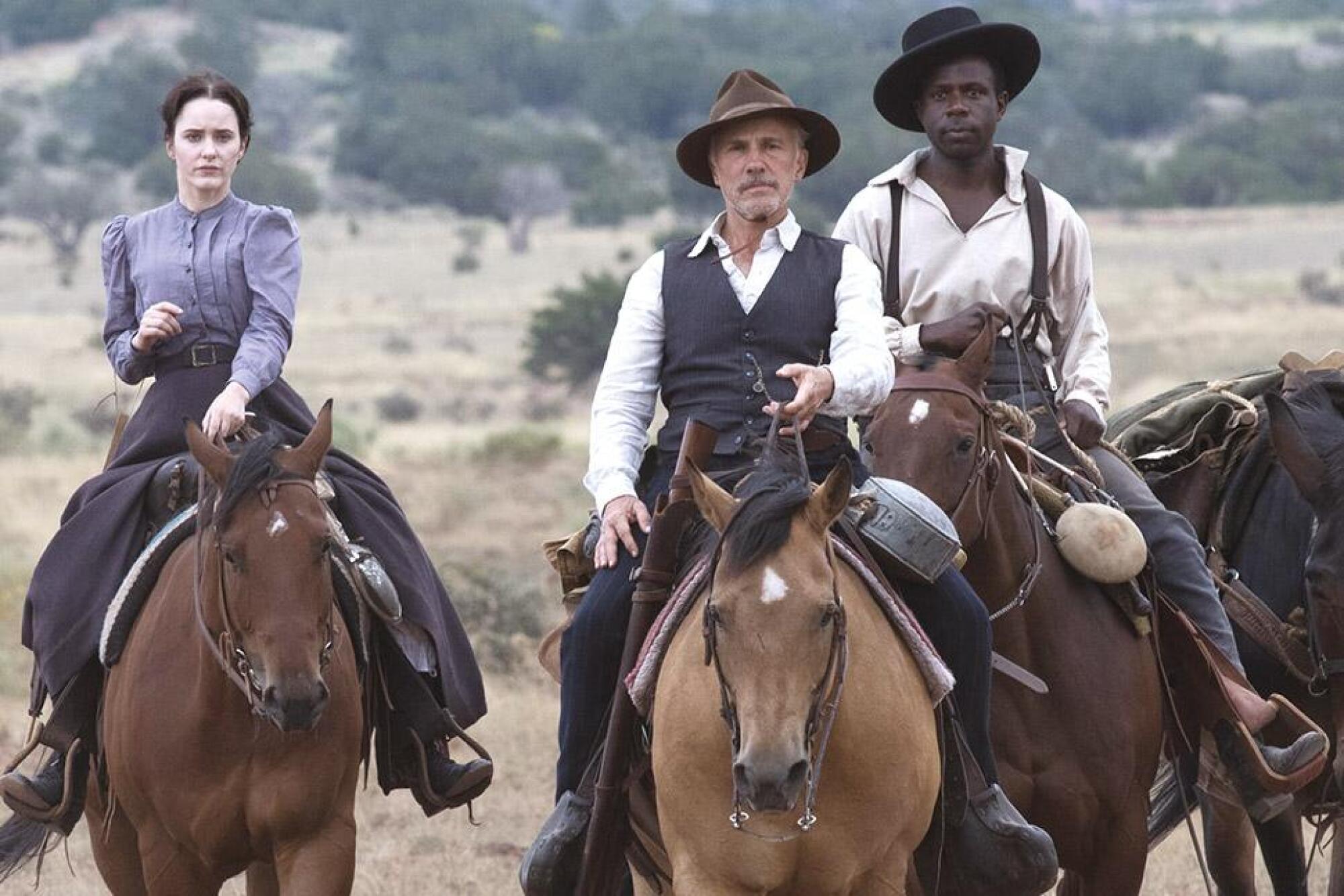
In “Dead for a Dollar” there’s a fantastic scene where two men, one Black and one white, fight each other with bullwhips. Where did the idea for that come from and what it was like staging that sequence?
Well, I’ve had bullwhips in “Wild Bill” — Calamity Jane uses one just to show off. And then we did it again when I did the “Deadwood” pilot, I had the Calamity Jane character bullwhipping away. That set it in my mind because when you’re around it, the crack is so enormous. And the idea of getting hit with one of these goddamn things is utterly terrifying.
So I always had it in my head, it’d be great to be able to stage a fight with two guys with bullwhips and see what could happen. And we didn’t have very much time. I think I shot it in about two hours. But the deeper implications of the character, the Anglo character trying to bullwhip a Black man and the Black man resisting in kind, I thought was a very interesting idea. And it worked nicely, in my opinion, because you’ve got an important dialogue scene going on in between. It’s not just stopping the movie for a dialogue scene. You can keep the river flowing without taking away from your dialogue
You shot this movie pretty quickly, it’s fairly inexpensive and it’s coming out from a relatively small distributor. If you would’ve made this movie in 1990 or 1980, it would have been a much longer shoot and a much bigger production. What has it been like to weather changes in the industry?
Well, I always say everybody wishes they could be 25 years old again. And I’m no different than anybody else, but I’d a lot rather be 25 when I was [25] than now. I always say I’ve never had an honest job. I got into the circus when I was about 23 and I wanted to see if I could do it. I often quote Samuel Johnson: “We come to the arena uncalled to seek our fortune and hazard disgrace.” And I think the underline is “uncalled.” Nobody said, “Hey, we’re desperate to have your contribution here, Walter, come on over.” You have to earn it.
Now the old system was very unfair in many ways. It was obviously unfair to women and minorities, there’s no question about that. It still was rigorously competitive, but it was a closed shop. There were the studios and that was it. There was no independent cinema. When I was starting out, the studios were run by people that were largely show people and they had a real feel and a connection for movies and show business. Now it’s being run by people with business models.
I certainly don’t want to present the old system as being some ideal form of existence. There has always been the attempt by the financial element to both homogenize and pasteurize the product, the theory being the more you homogenize and pasteurize, the wider potential audience, no matter how many times we have niche breakthroughs because of people that took chances and somehow got a film out there that was different.
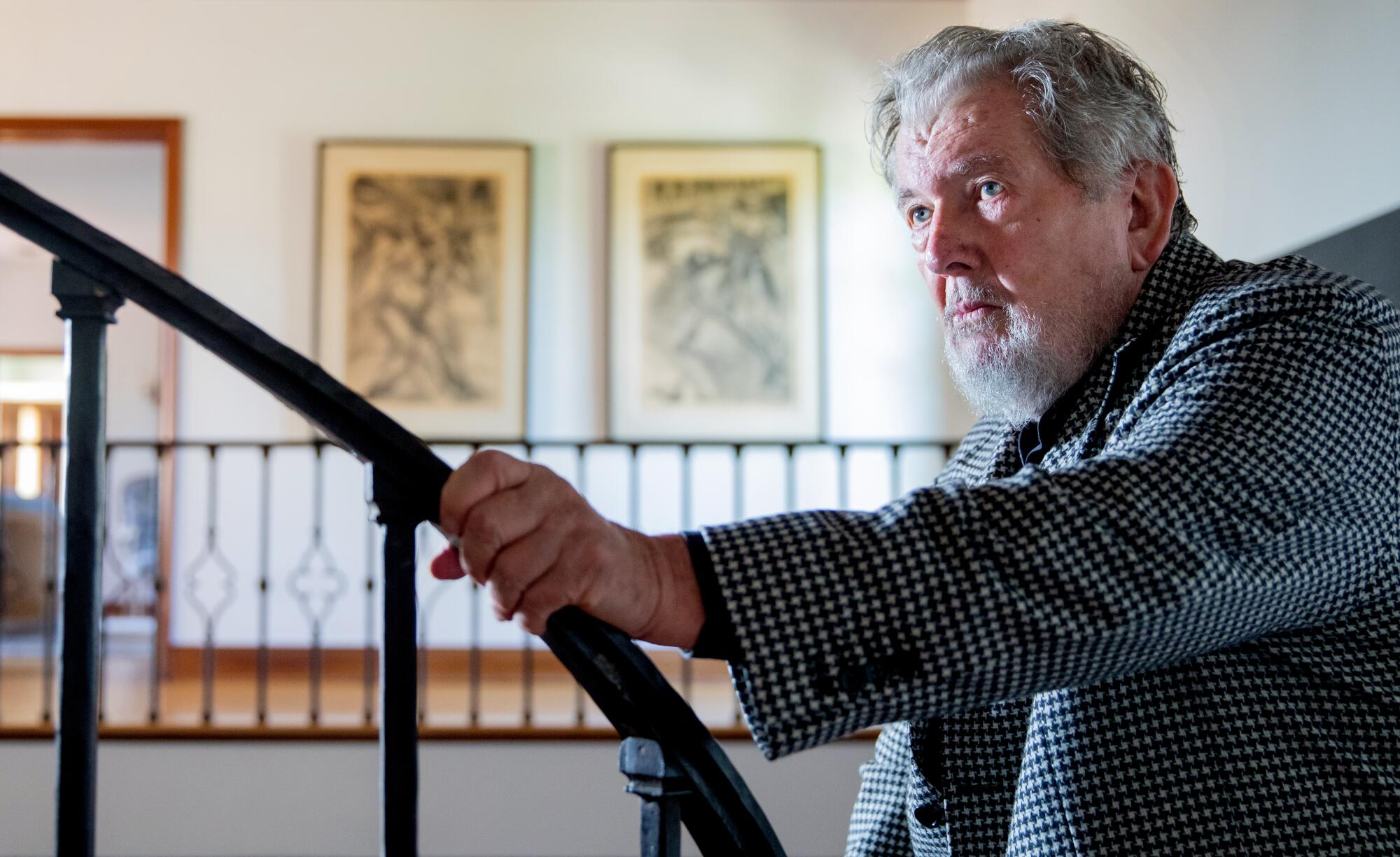
How does it feel when older movies of yours like “The Driver” or “Streets of Fire” find a new audience?
I’ve had a number of movies that a few years later turned out to be better thought of. “The Driver” is certainly the best example. Every festival I’ve been to shows “The Driver,” it’s one of my leading cards. “The Driver” was, in the United States, a complete critical and commercial failure. I did not get one good review. They were all bad except one: Dave Kehr, Chicago Reader, who got everything that I was trying to do. I will also say, when you’re a young filmmaker, you may deny it, but they all read the reviews. When you get older, you don’t. Somebody says, “Oh, you ought to read this one.” Sometimes you do. And that’s not a knock on the critics. They’ve chosen a rough way to make a living. And a good critic is an artist as well. God knows we need good criticism.
For whatever reason, it seems like people are really into “Streets of Fire” right now. It has screened in 70mm in both New York City and Los Angeles in just the past few months.
I’m not smart enough to understand how these things work. I think it’s now being much more understood. As I always said, even then, even though it had action things in it, it was my attempt at a musical. I knew it was close as I would ever get to do a musical. And I like musicals, but I wasn’t going to [be] Vincente Minnelli. I was incapable of that. But I thought I could do something with pop music and mixing genres and it was very experimental in its way.
But why does a movie not find an audience? You always want to say, “Well, they didn’t sell it right.” And that can be true. It is possible not to sell a movie properly. But the audiences, they pick what they want. The one thing we know about an audience is they have a sense of their own.
At the end of “Dead for a Dollar” there is a title card that says of Christoph Waltz’s character that he didn’t leave behind family or personal fortune, but only his good name. I can’t help but wonder how you feel about that for yourself. What would you hope that your legacy as a filmmaker would be?
I have no idea. It would please one if somebody looked at your films sometime in the future and had interest and pleasure — that would be good. When I move on to the next world, I think those things will not be too important to me. But you hope for the best. You make them for yourself, you hope somebody else is interested.
More to Read
Only good movies
Get the Indie Focus newsletter, Mark Olsen's weekly guide to the world of cinema.
You may occasionally receive promotional content from the Los Angeles Times.


